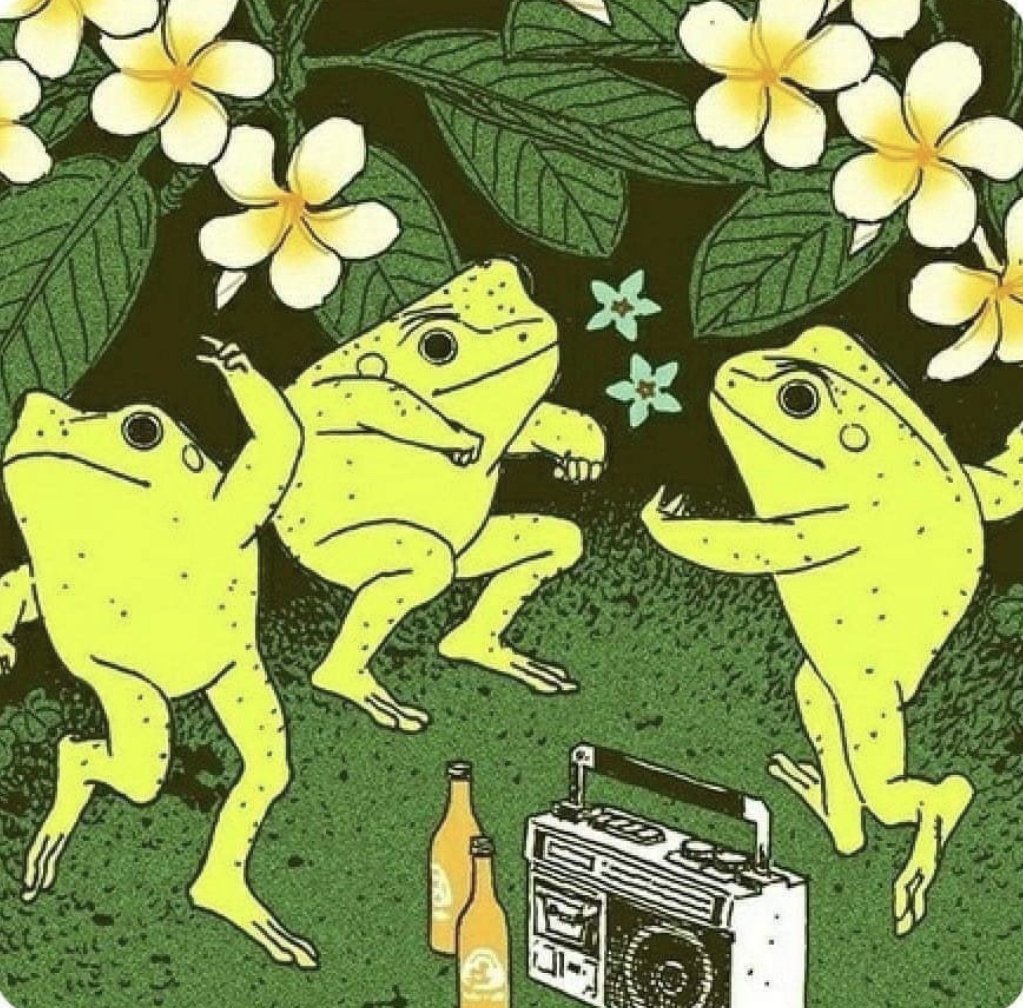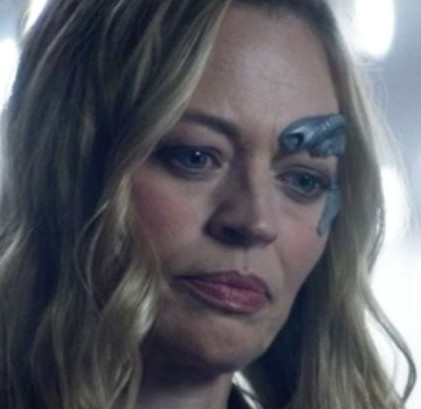I’m just tired of the trope of the person looking for vengeance getting right up to the point of killing the object of their revenge and then stopping because “it will make me just as bad as you.” No it won’t! The movie has made it very clear that he’s an evil son of a bitch! Kill the fucker!
Plus the hero killed like thirty goddamn people along the way to the big bad guy. Some of those guys had families too, asshole! You’re already a monster!
And if you let him live, he’s just going to keep killing other people eventually. All you win is a moral high ground for barely 5 minutes after the credits roll. Monsters are really good at convincing themselves that they’re not monsters!
Especially when they’ve slaughtered so many underlings to get there. Like I have no issue with people killing other people. Finn gets clowned on because people shriek “HE WAS A STORMTROOPER AND GOT UNPLUGGED AND NOW HES JUST KILLING THEM WHAT THAT DOESN’T MAKE SENSE”. I mean… they’re shooting at him. Literally kill or be killed. That’s war and that’s what happens when you’re fighting for EVERYONE. Unfortunately people will die.
But that shit?! Fuck off. You don’t get to spend however long wading through a river of blood only to suddenly stop because you have no issue with your pants being soaked but your shirt being stained is too much. Fuck all the way off.
I mean usually these stories are pretty contrived. They’re set up in a way where anyone who dies along the way is kill or be killed, but the final villain conveniently gets a chance to cry for mercy.
I think that’s mainly done to show the bad guy is actually a coward.
Something something too pathetic to kill blah blah
Does this mean that Inigo is a better person that Westley is?
Westley’s a good guy, but Inigo is a good guy and the ultimate wingman. Bonus points.
Depends on your view on revenge in general
Or you have Booker Dewitt who’s like “oh I was a Pinkerton and I killed natives I hate myself” while killing everyone on the screen in increasingly comical ways and drowning himself before drowning himself.
I think it was well done in The Last of Us 2
Warning: massive spoilers below
I loved the last episode of The Last of Us. I loved that he wasn’t about to make that sacrifice, even if it was for the fate of humanity. I loved that he was willing to kill everyone in the building to save his daughter, or whatever you’d call her. It was such an amazing direction to take, because nobody ever takes that direction.
Well the game did but yeah
I’m not a gamer, but I’ll take your word for it.
Well others have called it shit, pointless and stupid. So let’s not be too hasty, I might just have a dumb take on it. But I really felt like they did it well and told a good story.
The point of TLOU2 was showing that vengeance only creates an endless cycle of vengeance (in my interpretation of it, it’s been a few years since I played so my memory is a bit rusty).
Massive spoilers ahead (TLOU2 is getting an HBO show, so even if you don’t play the games you might not want to spoil it if you like the show).
Edit: I tried to mark this as a spoiler with markdown, but it’s not working on Boost. Unsure if it’s working within Lemmy site or if it’s just a Boost issue.
spoiler
Joel kills Abby’s dad to save Ellie (whether he actually needed to kill the doctor is up for debate). Abby finally catches up to Joel and kills him for payback, Ellie goes to hunt down Abby but discovers along the way that Joel had lied to her and the reason why Abby killed him. :::
Anyway, it’s at this point where Ellie realizes that a) she’s fucking tired, b) all of this pain could’ve been avoided had no one killed anyone, c) Joel wouldn’t have wanted Ellie to throw her happiness away in order to avenge him, and c) she just wants to go live a peaceful life with Dina. So she decides to break out of the cycle and go chill on her farm with Dina.
There are a lot more nuances, but that’s the general gist. What saves TLOU2 from being just another trope that’s discussed in this thread, is how it forces the player to experience both characters’ POV. I absolutely hated Abby when the game switches you over to her playthrough, especially since you start over pretty much (in terms of gear, abilities, etc). But by the end, I really empathized with her struggle and agreed that she was justified in killing Joel. It sucks, I loved Joel, but he fucked up pretty badly and paid the price for his actions.
Sometimes the “good guys” don’t have a happy ending–even when Ellie returns to Dina, she massively suffers from PTSD and won’t ever be the same–and that’s okay in some stories. So I get why that game angered so many fans, but in my opinion it told a more realistic story and is better for it.
Break out of the cycle after unnecessarily severely beating down someone who was literally just being brutally tortured moments ago. I feel the realization would have had more impact pre-beating, that part was just unnecessary and I hate being forced into actions like that in a way that makes it feel like you have a choice but you don’t, just give me a cut scene if I don’t.
I don’t necessarily fully disagree with you, but I also don’t remember all of the nuances leading up to the final showdown.
You know…thank you for spoiling that. Because knowing just the first shocker of TLOU2 made me think “This is pretty nonsense.” And I didn’t bother with it after learning that.
But knowing about the theme of recurring violence and how it was directly in response to previous events makes a lot more sense, and I don’t feel as harshly about it!
I still recommend playing the game. Even if you ignore the story, it’s a superior game to the first in terms of better mechanics, better level design, better combat, pretty much better everything from a gameplay standpoint. In my opinion, if it weren’t for Joel being killed, the game would’ve had universal acclaim from those that loved the first game. The fact that there’s a trans side character also pissed off the conservative demographic, too.
In terms of the story, I think it has tremendous character growth by the end of the game. Ellie finally begins dealing with the mountain of baggage she’s had since even before meeting Joel, along with slowly confronting and coming to terms with the complex and conflicted relationship she had with him. Sure, she’s hunting Abby down to kill her for vengeance, but what occurs along the way is a whole rollercoaster of character development and existential crises. Abby also has a similar arc, albeit for different reasons.
Sorry for the long rant, I just think TLOU2 got a way worse wrap than it deserved by much of the gaming community.
There are legitimate criticisms for that game, but whenever anyone brings up “ReVENge baD” as the criticism it just makes me angry. It’s like they already made up their minds about all of the characters and were just too stubborn to change their minds during the story.
That’s not exactly what it’s trying to say… It’s a detante of a subtler version of the aphorism “An eye for an eye leaves the world blind.” Regardless of if the person deserves it or not, “If I kill you in cold blood while I have you at my mercy, it will change me for the worse.”
Once the wretch is powerless and begging you for their survival, would you really just end them? You’re the one that has to live with that.
Once the wretch is powerless and begging you for their survival, would you really just end them?
Yes, if the “wretch” is responsible for a huge amount of murder. And, as Stamets says, also if the hero has killed a bunch of people to get there anyway.
If the hero lets the guy who is going to destroy the world with his special neutronium bomb live because it will change him for the worse if he kills him, I think that’s a ridiculous resolution for a movie.
Usually the situation isn’t so black and white. It’s not Jack Bauer killing a terrorist that will otherwise go on to blow up a maternity ward. The villain is defeated and they probably already have to deal with the normal societal punishment for what they did wrong, or otherwise live in some equivalent purgatory.
Come on. We’re talking about a movie, not reality. Kill the bad guy. I mean I like Batman, but the Joker escapes from Arkham every single time he gets put in there. Just kill the guy already.
Maybe the movie was trying to tell you something…
That if the hero doesn’t kill a psychopathic criminal, he keeps coming back to kill more people?
Maybe it’s trying to say something about preponderance, killing for just belief, and human fallibility.
Is there any indication they’ve actually changed? Usually not. They just don’t like that consequences are happening to them, personally, and so they’re crying about it. Most of the time they had no problem killing innocent people or sending their own goons to die trying to stop the hero from getting to them, the tears and emotional manipulation are just the last ditch effort.
And if you spare them they’ll probably do it all over again.
Think of all the lives Batman would have saved if he just killed the Joker on first contact.
Batman at least has a code. He doesn’t kill the minions or the Joker. He isn’t judge, jury, and executioner of Gotham.
deleted by creator
Well there’s one country in the world currently taking this approach and… it’s being met with mixed feedback.
I agree though, kill the bad guy and don’t waste time talking to them about it first.
If we’re thinking of the same country, it’d be like the bad guy using a bystander as a human shield and the person seeking revenge just goes ahead and stabs them both; not exactly what we’d expect from the “good guy”.
“Shoot the hostage” - Speed
Interactive TV, Jack! WaVe oF the FuTuRe!
Dennis hopper invented camming
That explains A LOT about camming
I wouldn’t expect it to happen in the real world, but we’re talking movies here.
travel for two weeks
lose 3 party members
finally arrive and defeat the villain
“Nah, I don’t really feel like it”
deleted by creator
Assassin’s Creed Odyssey isn’t always great with its writing, but there’s a few moments I like.
First one: You’ve quested to get an audience with Nikolaos, Kassandra’s father that threw you and your infant brother from a mountain by orders of the villains. You’re given a prompt to kill him, or question him. If you choose kill, then Kassandra lunges at him, announcing her intent…but then relents, shirking back, deciding it’s not worth it. He says, gently, that he loved her, and her brother. That line hits the berserk button, and Kassandra immediately thrusts the spear through him.
Second one, when you’ve finally cornered one of the top cultists that nearly engineered an election in his favor, you get a simpler prompt: Either kill him quickly, or drown him painfully.
There’s a great/horrifying chapter in for whom the bell tolls where the villagers of a Franco ruled town get revenge on their fascist leaders. Might change your mind.
And this is why Roadhouse is the best movie ever!
I think you have to find the line where revenge can do more harm than good, and where revenge is just going to end the arc (so to speak)
In Montoya’s case it brings the killing to an end, because The Count (as far as we know) has no one to miss him, no one to seek vengeance for him and no one to get pissed that he is dead. So when Montoya stabs him that’s it – The Count is dead, Montoya’s need for vengeance is satisfied and the story is done.
But if you go to something like Romeo and Juliet (or West Side Story because I can remember the character names), then getting revenge there just causes the cycle of violence to continue.
Bernardo stabs Riff. Tony stabs Bernardo. Chico goes looking for Tony, and eventually shoots him. And then – at the end, the two gangs want revenge.
Now clearly if Maria kills Chico for him shooting Tony, it won’t bring Tony back, but it will cause more anger in The Sharks.
And if The Jets kill Chico for shooting Tony, then it won’t bring Tony back, but it will cause more anger in The Sharks.
And if The Sharks get revenge for Bernardo’s death by taking out Ice, then it won’t bring back Bernardo, but… you get the idea.
Which is why Maria says “no”, and tells them to let it go. She might loathe Chico and want him to pay for Tony’s death, but killing him won’t help.
I grew up with West Side Story and Xena, so I am more on the “don’t kill people for revenge” side of things.
Not that I am saying Montoya was in the wrong, of course :)
It was such a powerful scene for Montoya as well and the post by OP is missing the context.
Count offers him money and power at the request of him cementing that both of those mean nothing to him. It stresses how much he wants his father back.
Then you have the real world where Mandy pulled the emotion from his own father being taken from him (by cancer?)
Finally. This was a kids movie. You go through the whole movie with PG dialogue to be dropped that bomb. Less is more when it comes to swears.
“Son of a bitch” is pretty tame as swears go, particularly in the 80s where even G kids’ movies would probably be pushing PG-13 these days. I do agree having otherwise clean dialogue does increase the impact when it’s used, but I’d argue that it’s Mandy that really sells it. There’s a lot of real pain, loss, and anger behind that line when Mandy speaks it, and that gives it some serious weight.
I think a key point of that, though, is don’t start killing for revenge. Like comments above, if you kill 30 underlings to get to the boss you are seeking revenge against, and then stop that revenge right before killing them, you aren’t exactly taking a moral high ground.
The saying is “Before setting out on a journey of revenge, dig two graves.” Maybe we should pump up that number a bit.
Revenge is an imperfect mechanism to accomplish the real good of stopping those that harm people.
“To The Pain” is a much better solution as it leaves a lasting example and warming to others.
“‘To the pain’ means that the first thing you lose will be your feet below the ankles. Then your hands at the wrists, next your nose… The next thing you lose will be your left eye, followed by your right. […] Your ears you keep, and I’ll tell you why: so that every shriek of every child at seeing your hideousness will be yours to cherish; every babe that weeps at your approach; every woman who cries out, ‘Dear God! What is that thing?’ will echo in your perfect ears. That is what ‘to the pain’ means; it means I leave you in anguish, wallowing in freakish misery, forever.”
— Westley, The Princess Bride
While I tend to agree from an emotional and comeuppance perspective, stuff like zero tolerance laws a d “law and order” policies tend to show tackling the source and causes of crime for most to be more effective than a harsh punishment, with similar things with rehabilitation. That said, some people just gotta die. For everyone else’s sake, or they just keep repeating their actions.
You’re absolutely right, we should rehabilitate most people as best we can but also just straight up murder sonsabtiches of a certain caliber.
deleted by creator
See also: Kill Bill
And Deadpool
I feel like this is where The Northman shines.
Certainly not moral, belivieng that pain should be avoided or respect for life itself.
I prefer the old logic.











